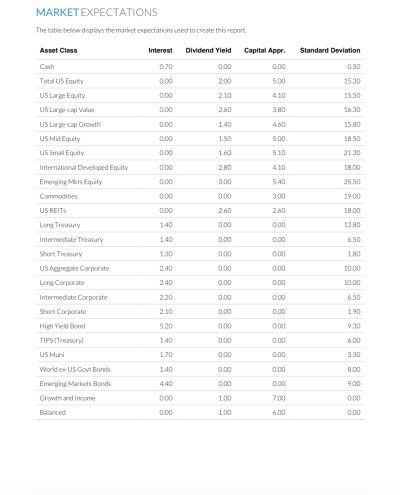RME1958
Confused about dryer sheets
I think this is mostly an exercise in futility. No matter how clever your software is, it won't be able to come up with a strategy to put 10 pounds of potatoes into a 5 pound bag. The best it can do is help you put 4.9999 pounds instead of 4.95.
The IRS has a claim on X% of the money in your IRA/401K. And the richer you are, the stronger their claim and the larger X is going to be.
The deeper I get in retirement, the more I realize that all that I was doing was just shuffling money around, and changing the timing of *when* I paid the taxes.
The biggest tax-related thing is when one spouse of a married couple dies and the survivor gets shifted to the Single Filing Status. That shifts the start of the 22% rate from $79K to $40K, thus exposing up to $39K that will be taxed at 22% instead of 12%. That's another $3900 in tax.
That's the main reason to do Roth conversions. And none of the clever software in the world can do anything about that.
The main benefit of these software products is to advise you not to do stupid stuff. Okay. But you can figure that out for free.
I spent $20 initially and did a 1 hour consult for $125 with Income Strategy. It gave me something to play with for a couple of weeks but I have the same conclusion as above and probably should not have spent the money. Besides the question of whether the taxes will be paid under married filing jointly or single, is the question of what will happen with future tax rates. Of course if they go up, you will be better paying more under the lower rates now than in the future after they go up. But who knows if/when that will happen?
For me I have a few years until age 65 so I am managing income to take advantage of ACA tax credits then it is Roth conversions up to 22% until RMDs. Then I hope I am complaining because my RMDs have me and my wife in the 32% tax bracket due to the booming stock market.


